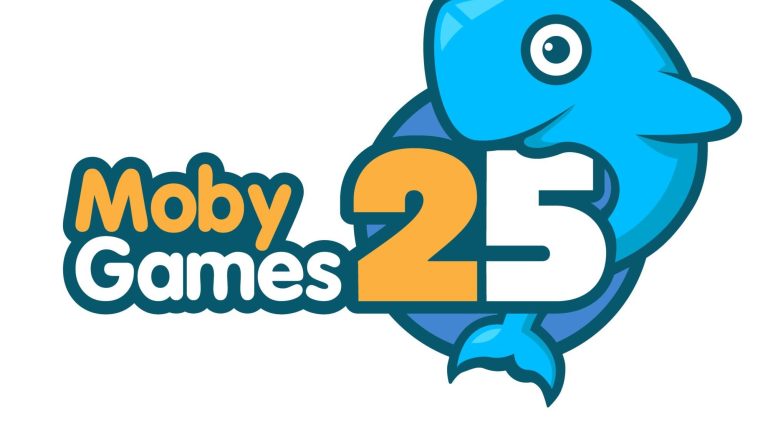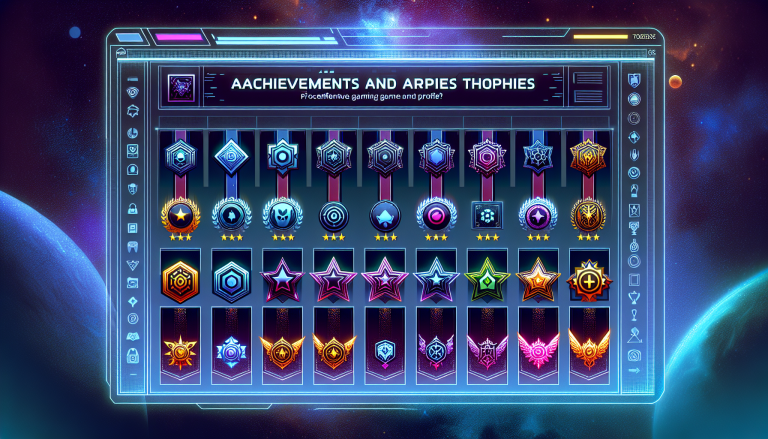Hey there, gaming enthusiast! If you’ve been keeping up with the gaming industry, you’ve probably heard about microtransactions and the ethical debates surrounding them. Today, we’re going to have a friendly chat about this topic and try to understand why it’s causing such a stir. But don’t worry—I’ll keep the jargon to a minimum!
What are Microtransactions?
So let’s start from the beginning – what exactly are microtransactions? Well, as the name suggests, they are small, often optional, purchases that gamers can make within a game. These may be for in-game currency, cosmetic items, or even power-ups. Sounds simple enough, right?
The Ethical Quandary
Now, here’s where the waters get muddier. Many gamers and critics argue that microtransactions are a form of exploitation. Why? Because game developers often create a sense of urgency or need around these items, enticing players to spend real money—often more than they initially intended or can afford. Moreover, these purchases don’t always offer a clear value, leading to questions about fairness and transparency.
Should Games be ‘Pay to Win’?
- The concept of ‘Pay to Win’ is a major bone of contention in the microtransactions debate. Here, games are designed in such a way that players who make microtransactions have a significant advantage over those who don’t. This can lead to an uneven playing field, and frankly, it’s not much fun when someone can buy their way to the top, right?
- Then there’s the issue of kids and microtransactions. Many games popular with children include these features. But do kids really understand the value of money and the implications of these purchases? It’s a hard question with no easy answers.
Game Developers and Profits
On the flip side, we have to consider the viewpoint of game developers. Developing a game isn’t cheap, and microtransactions offer a steady revenue stream. Some argue that without microtransactions, many free-to-play games would cease to exist. And let’s be honest – we all love a good free game!
But, game developers also have a responsibility to their audience. Striking a balance between making a profit and keeping gamers happy is the key.
Can There be an Ethical Middle Ground?
- One suggestion for an ethical approach to microtransactions is to limit them to cosmetic items only. This way, players can personalize their gaming experience without affecting the gameplay or outcomes.
- Another idea is to provide clear and transparent information about the costs and benefits of microtransactions, so players know exactly what they’re getting.
Microtransactions, like many elements of the gaming industry, are a complex issue. But by having open and honest discussions, gamers and game developers can work together to find a solution that benefits everyone. Game on!
Understanding the Controversy Surrounding Loot Boxes
When it comes to the world of gaming, few topics stir up as much heated debate as loot boxes. It’s no secret that these in-game virtual boxes, which you can buy using real-world money, have sparked considerable controversy. But why? Let’s delve into the topic and unpack some of the issues.
A Brief Overview of Loot Boxes
Before we dive in, it’s essential to understand what we’re dealing with. Loot boxes are virtual grab bags full of in-game goodies. You never know what you’re going to get – it could be cosmetic enhancements, new characters, or even powerful weapons.
Now, this would all be well and good if these boxes were just rewards for gameplay. But in many games, you have the option to purchase these boxes…with real money. And that’s where things get dicey.
The Element of Chance
One key point of contention is that loot boxes are something of a gamble. After all, you’re paying money without knowing exactly what you’re going to get. And some argue that this isn’t too far removed from, say, a slot machine.
Indeed, the thrill of potentially getting a rare item might lead some players to spend more than they can afford. It’s been likened to the psychology of gambling, and this has caused concerns about potential addiction and financial hardship.
- Pay-to-Win Controversy: Another issue is that some games have loot boxes that contain items which give players a significant advantage. This gives rise to a “pay-to-win” scenario, where those with deep pockets can essentially buy their way to victory. And many players feel that this goes against the spirit of fair play.
Consumer Protection and Regulation
These concerns have prompted some countries to regulate loot boxes under gambling laws. In Belgium and the Netherlands, for example, games with loot boxes have been classified as illegal gambling. However, other regions, such as the United States and United Kingdom, do not currently consider them to be gambling.
There’s also the issue of transparency – or lack thereof. Some believe that game companies should be more upfront about the odds of getting certain items in loot boxes.
So there you have it – that’s the loot box controversy in a nutshell. As you can see, it’s a complex issue, with lots of different viewpoints. But regardless of where you stand, it’s clear that this is a conversation that’s going to continue for some time.
The Psychological Impact of Microtransactions and Loot Boxes on Gamers
Let’s delve into the psychological landscape that microtransactions and loot boxes forge in the minds of gamers. Warning, there’s more to it than meets the eye…or the wallet!
When we discuss the psychological implications, it’s all about the thrill of the chase, the anticipation, and the reward. That’s the holy trinity that microtransactions and loot boxes capitalize on, and it can be quite impactful.
The Thrill of the Chase
Imagine you’re playing your favorite game. A loot box appears on screen, sparkling with potential rewards. The allure of what could be inside is irresistible. This is what psychologists term as anticipatory pleasure. It’s not just about obtaining a certain item, it’s the anticipation of getting something potentially better or rarer that keeps gamers hooked.
The Anticipation
This is where the role of operant conditioning comes into play. Remember the famous experiment by B.F. Skinner? He proved that behavior which is reinforced tends to be repeated. In gaming, the immediate feedback of opening a loot box and receiving a reward encourages players to repeat the action in the hope of receiving an even better reward next time. It’s this anticipation that keeps players coming back for more.
The Reward
And finally, we reach the culmination – the reward! The mystery of what could be inside the loot box is what makes the entire process exhilarating. The element of surprise, coupled with the chance of obtaining a rare or powerful item, results in a rush of dopamine, the feel-good hormone. This dopamine rush creates a sense of satisfaction and excitement, linking positive emotions with the game and, by extension, the purchase of microtransactions or loot boxes.
But this cycle of thrill, anticipation, and reward can be a double-edged sword. The enthralling experience could make gamers vulnerable to addictive behaviors. Problematic gaming can ensue, which is characterized by excessive time spent playing, inability to control the gaming behavior, and neglect of other areas of life.
Words of Wisdom
Leading psychologists advise setting firm boundaries around gaming time and expenditure and developing a balanced relationship with gaming. Remember, games are designed to be fun and entertaining. The moment it starts impacting your mental health or financial stability, it’s time to hit the pause button!
Legal and Regulatory Challenges in Addressing Microtransactions and Loot Boxes
When our chat shifts to the legal and regulatory realm, things start to take on an air of complexity. Understanding how the wheels of law spin when it comes to microtransactions and loot boxes in video gaming is no walk in the park. But don’t worry, we’ve got your back! Let’s dive into this jungle, machete in hand, and figure out the lay of the land.
Legal Perspectives Vary Globally
One of the most significant challenges in handling these digital transactions is the varied legal perspective globally. While some countries view loot boxes as a form of gambling, others don’t see it the same way. For instance, Belgium declared loot boxes as illegal, equating them to a form of gambling. However, on the other side of the globe, the United States generally allows them, although there’s been a fair amount of controversy and debate.
So, you see, there’s no clear international consensus, making it tough for gaming companies to navigate the laws of multiple countries. But hey, who said the legal world was a piece of cake, right?
Regulating Microtransactions and Loot Boxes
Regulating these digital transactions can be a real brain-teaser too. It’s not just about declaring them legal or illegal. It’s about creating a framework that protects gamers, especially the young ones, from potential exploitation.
- Disclosure Requirements: Some regions have introduced laws that require game developers to disclose the odds of winning from loot boxes. That seems like a fair move, doesn’t it?
- Spending Limits: Another approach is to impose spending limits, restricting how much a player can spend on microtransactions within a particular timeframe. Again, a wise strategy to prevent gamers from emptying their wallets.
- Age Restrictions: Some lawmakers have suggested imposing age restrictions on these transactions, similar to gambling laws. That could be a good way to safeguard our young gamers, don’t you think?
Still, it’s a delicate balance to strike, and regulations like these can be seen as meddling with the creative freedom of game developers.
Legal Challenges and the Future
The legal challenges posed by microtransactions and loot boxes are far from being fully resolved. It’s a rapidly evolving field, with new developments popping up now and then. Like how Apple has recently been hit with a class-action lawsuit over loot boxes in their App Store games.
Will we see more lawsuits in the future? Will there be an international standard for regulating these transactions? Only time will tell. But one thing is for sure – the conversation surrounding the legality of microtransactions and loot boxes is far from over.
So, keep your eyes peeled and ears open, folks. We’re in for quite a ride!












